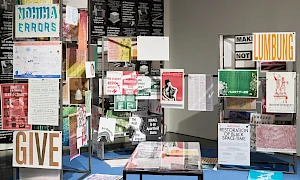In the first article as part of the strand ‘Towards Collective Study in Times of Emergency’ Ovidiu Tichindeleanu identifies the current repression within European public spheres, its entanglement with imperial histories and stresses the need to struggle for spaces of conversation within culture.1
The official term used by the United Nations to name the political condition of the Palestinian territories is ‘occupied’.2 The terms used in Amnesty International’s 2022 report to characterize the political condition of the Palestinians in the occupied Palestinian territories is ‘Apartheid against Palestinians’.3 The term is contested by supporters of Israel,4 and corresponds to the way in which the Palestinians themselves have named their political condition.5 The United Nations Economic and Social Commission for Western Asia (ESCWA) report from 2017 pointed to the transition from the ‘risk of apartheid’ to ‘practices of apartheid’ in Palestine.6 In March 2022, after a conjugated analysis by Palestinian, Israeli, and international human rights organizations, the UN Special Rapporteur also named the political condition of Palestinians ‘apartheid’, citing the ‘deeply discriminatory dual legal and political system’.7
These are not ‘fighting words’8 but terms used in the highest bodies defending human rights in the field of international relations. In turn, apartheid and occupied territories are referring to a particular mode of exerting power by way of racial domination and colonial occupation. This way of exerting power is not the appanage of one nation but has recognizable and direct roots in the European history of colonialism and imperial aggressions. In the nineteenth century, politicians and activists from the British Empire created the colonial illusion of an empty land of Palestine, calling it ‘a country without nation’.9 In the dark days between the World Wars the European imperial powers opted not to name the Palestinians or worse, talked about ‘the dog in a manger’,10 and even explicitly stated that they were ‘not going through the form of consulting’,11 the result being that Palestinians were excluded from talks regarding the future of the territories on which they lived. All modern colonial occupations have had a dimension of racial domination and have produced doctrines of superiority or supremacy that have proved even more persistent than the actual appropriation of land resulting from colonial occupations. The persistence of this mode of exerting power points to specific choices of governance, and through them to the persistence of the logic of colonialism not only in Palestine but in the common space of international relations in which we all operate. Dehumanization and violence exerted against entire peoples or communities is a world problem, not a local problem.
The situation in Palestine and Israel entered a deadly next phase as a consequence of Hamas’s terror attack and of the choice of Israel’s government to respond by way of the politics of revenge, with a military campaign of aerial bombing and ground invasion in Gaza. Both military operations inflicted de facto collective punishment, in a grotesque escalation of disproportionate violence. The resulting mass death of civilians in Gaza has been named genocide and a humanitarian tragedy.12 The public sphere in Israel was cut by strident statements that have openly dehumanized the Palestinians (‘human animals’),13 and with it extremist calls that openly promised atrocities in the name of ancestral spiritualities (a biblical response).14 It appears self-evident that there is continuity between the use of dehumanizing insults in the public sphere and the action of killing humans. Raz Segal, an expert scholar in genocide studies, has argued that the extremist drive to dehumanize and to inflict genocidal violence is a distinct phenomenon stemming from a radicalized doctrine of supremacy.15
In their reaction to the aggravation of the situation, mainstream political institutions and the mass media in Europe have, for the most part, opted to avoid all these loaded terms, as well as the issue of the radicalization of extremism, and to restrict language in reports and statements. Instead they have primarily stressed Israel’s right of self-defence and the terror of Hamas. In this regard, the words of the European Council,16 and of the President of the EU Commission,17 stand in stark contrast to statements from the BRICS (Brazil, Russia, India, China, and South Africa).18 Neither the critical terms from the language of international relations, such as occupied territories or apartheid, nor the issue of an expanding political extremism have come to the fore in most political statements and media reports. Such a reduction of the context narrows the possibilities of finding common ground, and by being cautious today makes tomorrow more dangerous. Moreover, by implicitly accepting extremism, it is brought closer, normalizing it at the centre of the political sphere. Such acceptance of extremism will only abet the return or rise of antisemitism and islamophobia.
As a result, the current state of the European political and public spheres is plagued by a distinct tendency to restrict freedom of expression, rather than creating meaningful dialogues across different positions. At the same time these spheres are becoming increasingly isolated within global debates.19 The violence of meaning produced by the tendency to restrict language has been generalized in practices of interpellation, censorship and self-censorship throughout Europe, to such an extent that even the call for a ceasefire on humanitarian grounds has fallen subject to this restriction, which is in itself egregious. The normalization of extremism within the political centre ground (not only at the far-right margins) and the acceptance of militarism reminds one of Simone Weil’s warning articles from the early 1930s,20 when she observed in Berlin the narrow vision of politicians, and reflected that the modern state has a tendency to develop the apparatus of repression. Accompanying such repressive tendencies, the global role of Europe is being questioned. It is unable to adopt a meaningful position, signalling either a tacit acceptance of the humanitarian catastrophe or willingly siding with colonial domination. This is a step backwards in efforts to face the colonial past and define a positive role for Europe internationally.
Very different positionalities are now confronted with the fact that, in the dark light of recent years – by way of war and diplomatic failures – the international space is inflected by coloniality and imperial violence that is exerted from multiple directions.
The cultural sector, which should, by definition, be the domain where the wealth of all humanity is defended, alongside freedom of expression and creativity, is now under immense pressure from the highest points in political and public spheres. The firing of David Velasco,21 the Artforum editor following the publication of a statement of solidarity signed by thousands of art workers, the cancellation of an award ceremony to honour the work of Palestinian author Adania Shibil for her 2001 novel Minor Detail,22 at the Frankfurt Book Fair, before having a chance to speak, and the forced collapse of the documenta 16 finding committee before even making a selection are only some of the most visible effects of this tendency.23 In a sector already plagued by the predominant condition of precarious work, the atmosphere of threats to one’s livelihood amounts to the rise of systemic censorship.
It is necessary to struggle for a different condition and orientation. For that to be possible, it is necessary to name the problem of repressive tendencies within the European public sphere. It is necessary to name the problem of the persistence of coloniality in international relations, and to point to the rise and normalization of extremism and militarism within the political centre ground. It seems to me, that it is only common sense to manifest solidarity against silencing, to struggle for spaces of conversation across differences, and to ask for a lasting ceasefire and for a distinct type of humanitarian aid linked to positive peace and reconstruction, and not simply as an afterthought to war and destruction. When wars and conflicts are spreading beyond the frontline creating societal polarizations, it is only common sense, nothing more, to hold the spaces that defend freedom against hierarchical divisions, colonial occupations, and imperial violence. And to advocate for a turn towards the politics of non-violence and compassion, and for the right to work in an international horizon free of dehumanization.
War is a fake simplifier. It simplifies only in the mode of destruction, which it then generalizes. The cultural sector can only survive if it breaks from this death drive.
The views and opinions published here mirror the principles of academic freedom and do not necessarily reflect the views or positions of the L'Internationale confederation and its members.
Related activities
The Soils Project
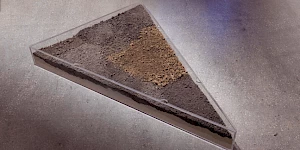
The Soils Project, is part of the eponymous, long term research initiative involving Tarrawara Museum of Art, Wurundjeri Country, Australia, the Van Abbemuseum in Eindhoven, Netherlands and Struggles for Sovereignty, a collective based in Yogyakarta, Indonesia. It works through specific and situated practices that consider soil, as both metaphor and matter. A further iteration of the project will open at the Van Abbemuseum in May - September 2024 as part of Museum of the Commons.
The Soils Project has been in development since 2018. An international collaboration between three organisations, and several artists, curators, writers and activists, the project has manifested in various iterations over several years including a three-part public webinar series titled The Soils Project: groundwork, and a two-week workshop, titled The Soils Project: On Country, for participating curators and artists. With a curatorium comprising arts workers from TarraWarra Museum of Art, the Van Abbemuseum, and Struggles for Sovereignty, the project’s approach seeks and facilitates opportunities to listen to diverse voices and perspectives around notions of caring for land, soil and sovereign territories.
Developed from this journey, The Soils Project’s forthcoming exhibition will embrace the deep histories of each participant’s location, examining the multiplicity of landscapes and environments, and the impact of colonisations and global industries on cultural heritage, land management and traditional knowledges.
Kyiv Biennial 2023
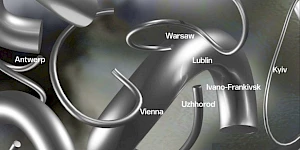
L’Internationale Confederation is a proud partner of this year’s edition of Kyiv Biennial.
Where are the Oases?
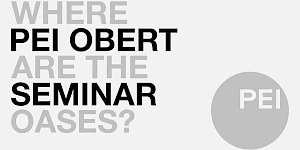
PEI OBERT seminar
with Kader Attia, Elvira Dyangani Ose, Max Jorge Hinderer Cruz, Emily Jacir, Achille Mbembe, Sarah Nuttall and Françoise Vergès
An oasis is the potential for life in an adverse environment.
Anti-imperialism in the 20th century and anti-imperialism today: similarities and differences
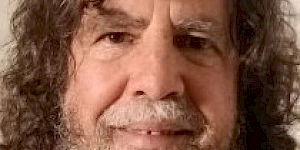
PEI OBERT seminar
Lecture by Ramón Grosfoguel
In 1956, countries that were fighting colonialism by freeing themselves from both capitalism and communism dreamed of a third path, one that did not align with or bend to the politics dictated by Washington or Moscow. They held their first conference in Bandung, Indonesia.
Cinema as Assembly
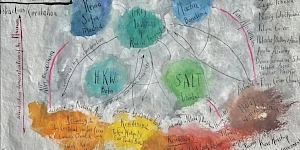
Cinema as Assembly investigates cinema as a space of social gathering and political engagement that prefigures and enacts forms of living beyond colonial capitalism.
Maria Lugones Decolonial Summer School
Recalling Earth: Decoloniality and Demodernity
Course Directors: Prof. Walter Mignolo & Dr. Rolando Vázquez
Recalling Earth and learning worlds and worlds-making will be the topic of chapter 14th of the María Lugones Summer School that will take place at the Van Abbemuseum in Eindhoven.
Archive of the Conceptual Art of Odesa in the 1980s
The research project turns to the beginning of 1980s, when conceptual art circle emerged in Odesa, Ukraine. Artists worked independently and in collaborations creating the first examples of performances, paradoxical objects and drawings.
Summer School: Our Many Easts
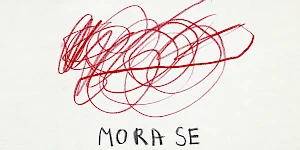
Our Many Easts summer school is organised by Moderna galerija in Ljubljana in partnership with ZRC SAZU (the Research Centre of the Slovenian Academy of Sciences and Arts) as part of the L’Internationale project Museum of the Commons.
Open Call – Summer School: Our Many Easts

Our Many Easts summer school takes place in Ljubljana 24–30 August and the application deadline is 15 March. Courses will be held in English and cover topics such as the legacy of the Eastern European avant-gardes, archives as tools of emancipation, the new “non-aligned” networks, art in times of conflict and war, ecology and the environment.
Song for Many Movements: Scenes of Collective Creation
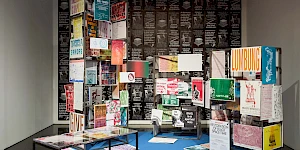
An ephemeral experiment in which the ground floor of MACBA becomes a stage for encounters, conversations and shared listening.
Related contributions
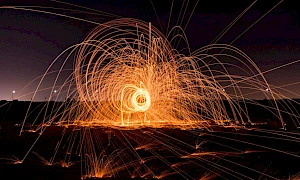
…and the Earth along. Tales about the making, remaking and unmaking of the world.
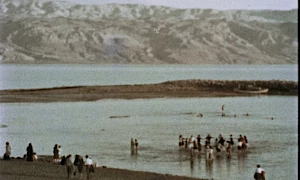
The Kitchen, an Introduction to Subversive Film with Nick Aikens, Reem Shilleh and Mohanad Yaqubi
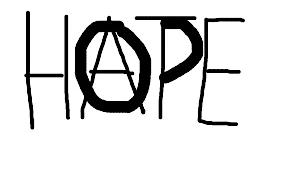
The Repressive Tendency within the European Public Sphere
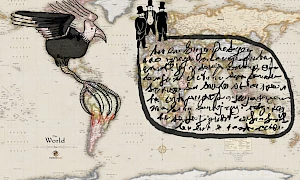
Troubles with the East(s)
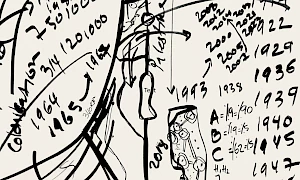
Right now, today, we must say that Palestine is the centre of the world
Body Counts, Balancing Acts and the Performativity of Statements
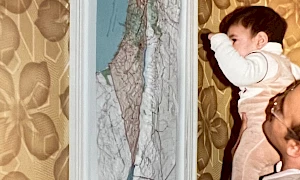
Until Liberation I: Learning Palestine
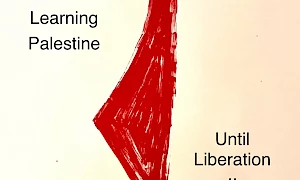
Until Liberation II: Learning Palestine
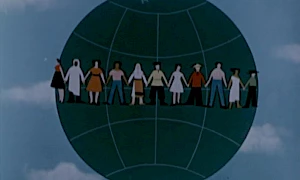
The Veil of Peace
Editorial: Towards Collective Study in Times of Emergency
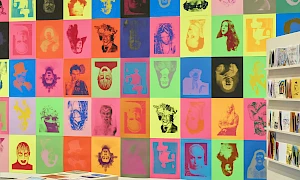
Song for Many Movements. Opening Performance Live on Radio Alhara
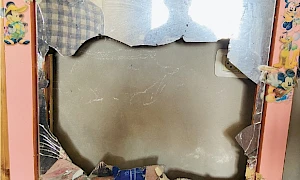
We Have Been Here Forever. Palestinian Poets Write Back
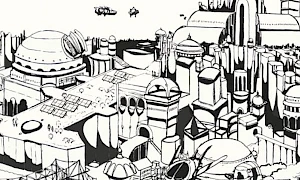
Indra's Web
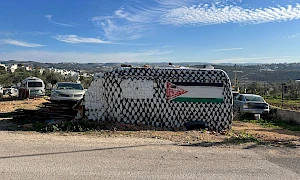
Diary of a Crossing
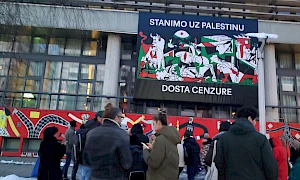
The Silence Has Been Unfolding For Too Long
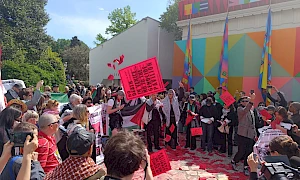
One Day, Freedom Will Be
